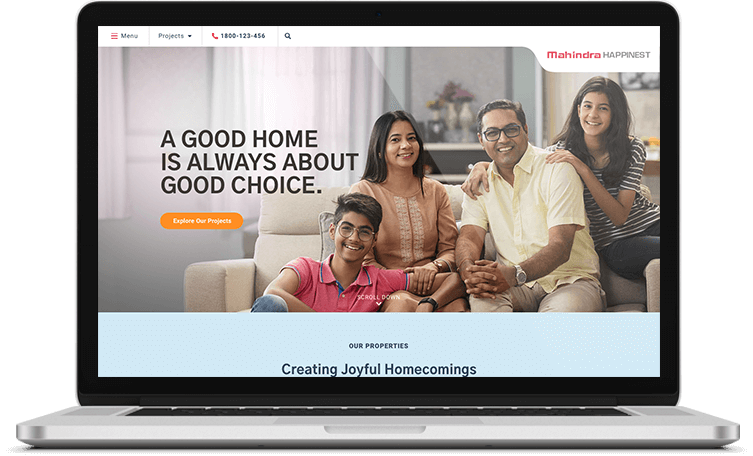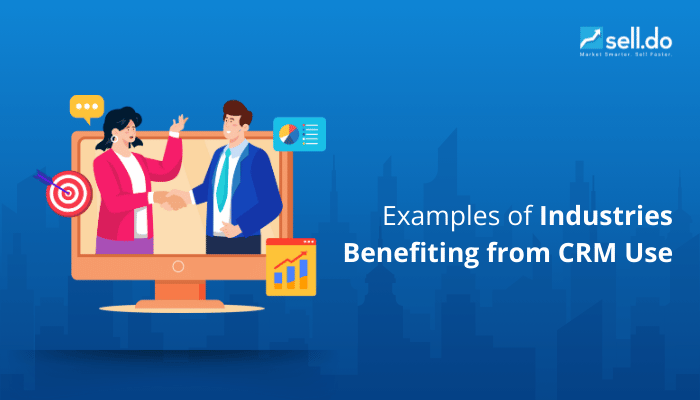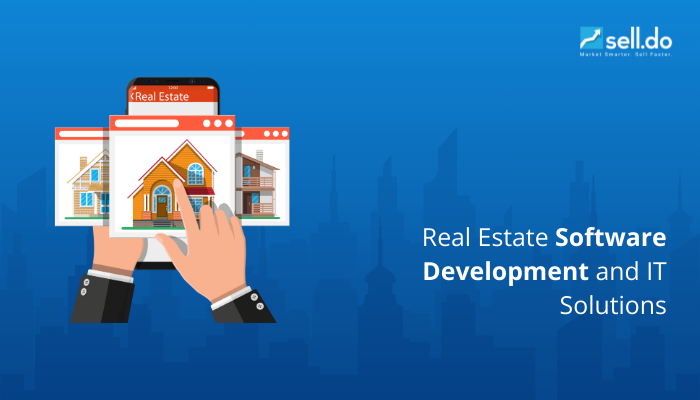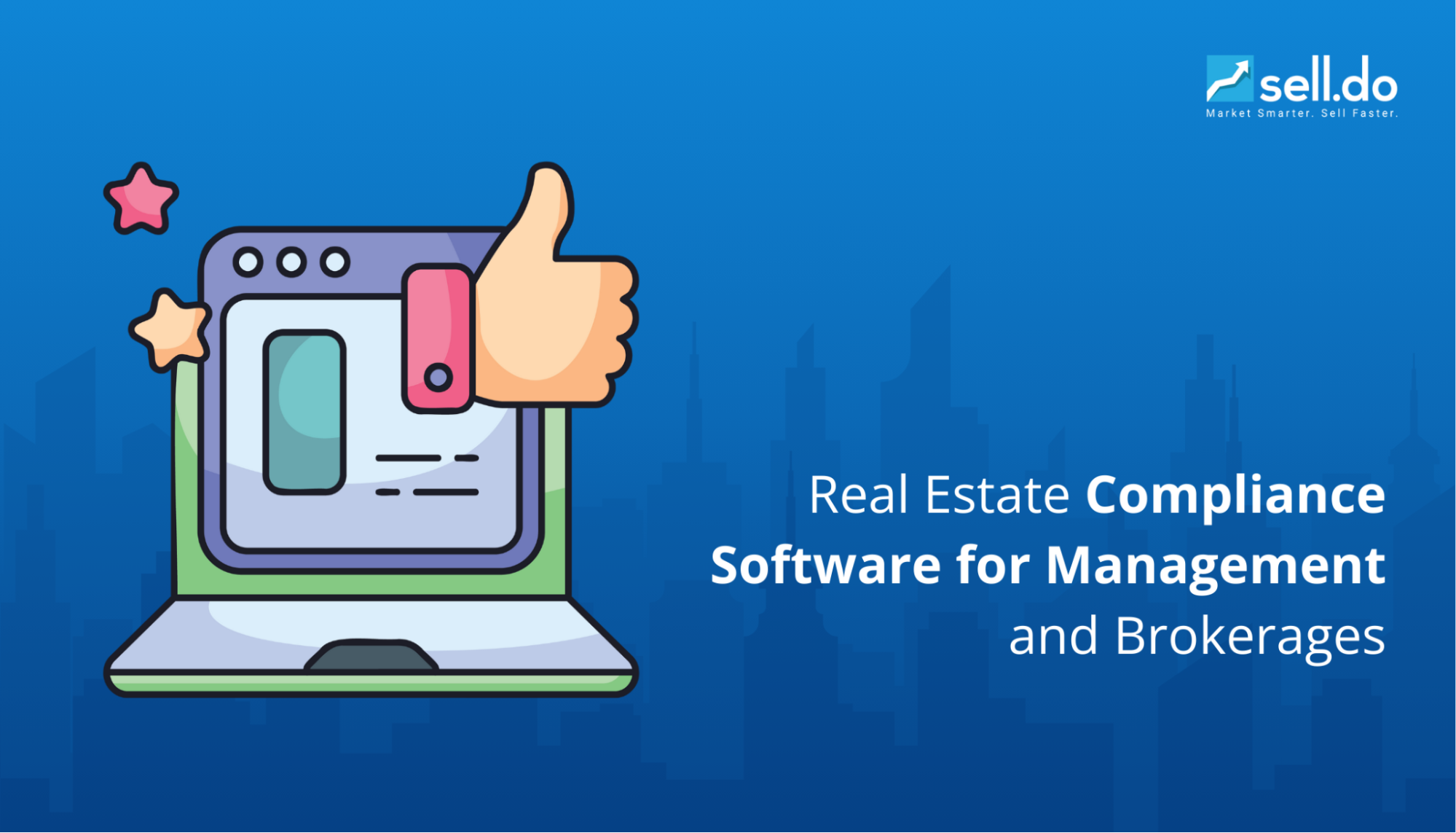Are you struggling to manage your business workflow? What if you had a solution to help you connect with customers, manage conversations, and track sales all in one spot?
That is exactly what a CRM does, and it is transforming businesses across many industries. So, what companies use CRMs? CRMs provide businesses in industries ranging from healthcare to real estate with the tools for organizing workflows, building long-term connections, and making better business decisions.
CRM software is in high demand as businesses see its benefits in terms of faster business growth and higher customer satisfaction. CRM solutions help you meet and exceed consumer expectations, whether tracking patient follow-ups in healthcare or managing real estate leads.
Let's explore in detail what companies use CRM for and how these tools transform their daily business operations.
First things first.
What is a CRM?
A CRM (Customer Relationship Management) system is a tool that can help you manage and improve your interactions with customers, whether you are in healthcare, finance, or real estate. A CRM allows you to centralize client data, log conversations, and establish follow-up reminders, which helps you stay organized and responsive.
Additionally, a CRM makes it easier to provide the type of personalized service that fosters long-term connections by centralizing several workflows. Regardless of your business, a CRM can help you better interact with clients, find development prospects, and streamline daily duties.
To help you understand better, let’s look at the functions of a CRM.
7 Key Advantages of CRM for Real Estate Businesses, to learn how CRM can be of help.
Functions of a CRM System
A CRM system offers a variety of functions that benefit businesses across industries. No matter what companies use CRM, these systems typically support several core functions that help manage customer relationships, streamline tasks, and drive growth. Here’s a quick look at some of its capabilities:
-
Contact and Lead Management
A CRM stores all client information in one place, so you can track every conversation, manage contact details, and get data on client preferences. This helps you understand each client’s history and needs, improving personalized service. For example, businesses can set up automatic follow-up reminders, ensuring no lead is left unattended.
-
Sales Tracking and Pipeline Management
CRMs offer tools for tracking every stage of the sales process, providing a visual pipeline for managing deals from start to finish. You can monitor deal progress, set revenue targets, and track individual and team performance. This organized structure allows businesses to identify bottlenecks, forecast revenue accurately, and ensure that deals progress smoothly.
-
Automated Marketing Campaigns
With CRMs, you can design and launch targeted marketing campaigns with built-in email and SMS automation to nurture leads with timely updates, promotions, or follow-up messages. Automated campaigns also make it easier to engage with clients regularly, increasing brand visibility and client loyalty without requiring manual effort for each touchpoint.
-
Task and Workflow Automation
CRMs streamline routine tasks, like sending welcome emails, follow-up reminders, or alerts for specific client milestones. By automating these actions, your team can focus on higher-priority tasks, boosting productivity. It also ensures a consistent approach, ensuring important steps are followed for each client, which is crucial for maintaining quality service.
-
Customer Support and Case Management
Many CRMs come with customer service tools, like ticketing systems and chat integrations, that help manage and resolve client inquiries. This ensures that support requests are efficiently tracked and addressed. CRMs also allow you to prioritize urgent cases, set up automated responses, and route tickets to the right team member, providing faster support and improving customer satisfaction.
-
Reporting and Analytics
CRMs offer detailed reporting and analytics, offering insights into sales success, customer behavior, and campaign results. These analytics enable you to discover trends, calculate ROI, and alter strategy to optimize results. Such real-time data is critical to making data-driven decisions, improving performance, and preparing for long-term growth.7
-
Mobile Access and Flexibility
CRMs offer mobile app access, allowing you to manage your business anytime, anywhere. Your team can log calls, view client history, and amend transactions in real time, even while on the go. This flexibility keeps teams connected and up to date, improving responsiveness and agility, particularly in firms with remote or field personnel.
These key CRM functions help you stay organized, improve customer happiness, and increase productivity. From healthcare to retail, no matter what companies use CRM, each can benefit from these technologies to promote long-term growth and more excellent client relationships.
Next, let’s explore how different industries use CRM tools to optimize their processes and propel their business to success.
 Recommended read:
Recommended read:
Industries Using CRM Tools
CRM tools have become essential across various industries. Each utilizes these systems to streamline operations, enhance customer relationships, and drive growth. But what companies use CRM most effectively? Let’s look at how various industries use CRM technologies to manage clients better, increase efficiency, and ensure long-term success.
-
Retail and E-commerce
In the retail and e-commerce sector, companies using CRM systems can range from small online shops to major global brands. These companies leverage CRM tools to enhance customer engagement, optimize marketing, and streamline operations. Here’s how companies in this niche use CRM effectively:
- Personalized Marketing and Customer Recommendations: Retailers like Amazon and Apple use CRM data to analyze customer preferences, purchase histories, and browsing habits. This allows them to deliver personalized product recommendations and targeted marketing, increasing customer engagement and driving sales.
- Omnichannel Engagement: Retail CRMs provide a unified view of customer interactions across channels—such as social media, email, and in-store—enabling companies like Zara to maintain consistent communication and support.
- Automated Marketing Campaigns and Loyalty Programs: Many retailers use CRM automation to run loyalty programs and marketing campaigns. For instance, e-commerce platforms use CRMs to send personalized emails, SMS, and notifications, encouraging repeat purchases.
- Inventory and Order Management Integration: CRMs that connect to inventory systems provide real-time stock updates and simplify order tracking, helping retailers like Walmart avoid stockouts and fulfill orders efficiently.
-
Real Estate
In the real estate industry, companies using CRM tools ranges from independent agents to large real estate firms. CRMs are crucial in managing client relationships, tracking property leads, and optimizing sales workflows. Here’s how real estate professionals effectively leverage CRM systems:
- Lead Management and Tracking: CRMs for real estate assist in tracking and categorizing leads from a variety of sources, such as website queries, social media, and property listings. Agents can prioritize high-interest leads and respond quickly, ensuring that no potential buyer or seller falls through the gaps.
- Automated Follow-Ups and Drip Campaigns: Many agencies use CRM automation to send personalized follow-ups, reminders, and drip campaigns. This keeps clients engaged over time, especially in long sales cycles, and ensures consistent communication.
- Property and Transaction Management: CRMs help agents and brokers organize property details, manage contracts, and keep track of transaction timelines. This reduces administrative work, allowing teams to focus on closing deals and managing client expectations.
- Data Analytics and Performance Tracking: Real estate CRMs provide insights into critical parameters like lead conversion rates, sales performance, and market trends, allowing businesses to make data-driven decisions and improve their sales tactics.
-
Finance Industry
In the finance industry, companies using CRM systems include banks, investment firms, and insurance providers that rely on CRMs to manage client relationships, streamline operations, and ensure regulatory compliance. Here’s how CRM tools are utilized effectively in finance:
- Client Relationship Management: CRMs are used by financial organizations to record and organize client profiles, which may include contact information, financial goals, investment history, and risk preferences. This enables advisors to personalize financial products and services to each customer's needs, thereby increasing client happiness and trust.
- Automated Communication and Personalized Outreach: CRMs allow financial departments to automate reminders for important client interactions like portfolio reviews, account updates, and insurance renewals. Automated email and SMS campaigns enable businesses to engage customers with timely, personalized content, keeping them informed and increasing client retention.
- Lead and Opportunity Tracking: CRMs help track new business opportunities, allowing finance teams to capture leads from various channels like referrals, online inquiries, and marketing campaigns. By assigning scores to leads based on their potential, finance firms can prioritize high-value clients and optimize their sales efforts.
- Regulatory Compliance and Documentation: CRMs in the finance industry comes with compliance tracking to ensure adherence to financial regulations and record-keeping requirements. It automates documentation and ensure all client interactions are logged.
- Data Analytics for Risk Assessment and Client Insights: CRMs offer data analytics to help finance professionals assess client behavior, investment trends, and portfolio performance. This allows firms to evaluate client risk, refine financial strategies, and provide clients with more informed recommendations based on real data.
To improve your marketing game: -
Educational Institutions
In the education sector, schools, universities, online learning platforms, and training institutes rely on CRM systems to manage student interactions, track enrollment, and improve the overall student experience. Here’s how CRMs support the education industry effectively:
- Student Enrollment and Lead Tracking: CRMs help institutions manage and track leads from various sources, such as website inquiries, open house registrations, and social media campaigns.
- Automated Communication: Schools and universities use CRM automation to send reminders about application deadlines, admission updates, and event invitations.
- Centralized Student Data: CRMs store comprehensive student data, including contact information, academic history, and course preferences. This centralized database allows admissions and counseling teams to personalize their interactions, enhancing the support and guidance provided to each student.
- Improved Alumni Relations: Educational institutions use CRMs to stay connected with alumni by tracking their career progress, engagement, and involvement in alumni programs. Automated communication and targeted campaigns inform alumni about networking opportunities, fundraising initiatives, and campus events.
-
Healthcare Sector
CRM systems are used by healthcare providers such as hospitals, clinics, and specialty healthcare facilities to improve patient care, streamline operations, and efficiently manage administrative activities. Here's how healthcare providers profit from CRM technologies.
- Patient Relationship and Care Management: Healthcare CRMs centralize patient data, including medical history, ongoing treatments, and contact information. This organization allows providers to personalize care, ensuring that each patient receives the appropriate attention, follow-ups, and support.
- Automated Appointment Reminders and Scheduling: CRMs help reduce no-shows by sending automated appointment reminders through SMS or email, allowing patients to confirm or reschedule as needed.
- Patient Engagement and Follow-Up Care: With CRM tools, healthcare providers can communicate with patients on an ongoing basis through health reminders, preventive care tips, and personalized follow-up emails. This enhances patient engagement and encourages proactive health management, fostering trust and long-term relationships.
- Coordination Among Medical Staff: CRMs enhance teamwork by centralizing information and making it accessible to doctors, nurses, and support staff. This improves collaboration and ensures everyone involved in a patient’s care has the latest information, reducing errors and enhancing the quality of service.
- Billing and Insurance Management: Many healthcare CRMs integrate billing functions, helping providers track payments, manage insurance claims, and ensure patients are well-informed about their financial responsibilities.
-
Hospitality and Tourism
What companies use CRM in hospitality and tourism? Hotels, resorts, travel agencies, and tour operators rely on CRM systems to elevate guest experiences, simplify booking processes, and maintain strong guest relations. Here’s how CRMs benefit this industry:
- Personalized Guest Experiences: CRMs store comprehensive guest profiles, including preferences, past interactions, and special requests. This allows hotels and travel companies to customize services—such as room selection, dining options, or excursions—ensuring guests feel valued and catered to.
- Automated Booking and Reservation Management: With CRM systems, hospitality providers can automate booking confirmations, reminders, and post-stay follow-ups, ensuring smooth communication and an organized check-in/check-out experience. Automated systems also help manage cancellations and last-minute bookings efficiently.
- Loyalty and Rewards Programs: Many CRMs integrate loyalty programs that track guest points, reward frequent stays, and encourage repeat business. Hospitality providers build long-term relationships and improve customer retention by offering exclusive benefits and tailored promotions.
- Multi-Channel Communication and Marketing: Hospitality CRMs enable companies to engage with guests across multiple channels, such as email, SMS, social media, and in-app messaging. This ensures a consistent communication flow, from booking inquiries to special offers, personalized for each guest.
- Guest Feedback and Service Improvement: CRM tools gather guest feedback via surveys and review tracking, allowing hospitality providers to address issues quickly and improve service. They can implement proactive service recovery strategies that enhance the guest experience by monitoring satisfaction and tracking complaints.
Without a clear understanding of their customers, businesses in these industries will find it challenging to decide what to market, when to do so, and how to effectively engage their audience.
Now, let’s explore the top CRM solutions to help you find the perfect fit for your business.
6 Best CRM Solutions
Ready to check out the best CRM platforms for your business? Find our curated list below:
-
Sell.Do - Best Real Estate CRM

image uploader
Sell.Do is a real estate-focused CRM built to enhance lead management, streamline sales operations, and automate marketing efforts for brokers, developers, and real estate agencies. Launched in 2011, Sell.Do’s real estate-specific tools allow professionals to manage property listings, nurture client relationships, and close deals more efficiently.
Key Features- Captures and scores lead from multiple sources, enabling teams to focus on high-potential prospects.
- Centralizes property listings and transaction details, simplifying property tracking and site visit management.
- Automates email, SMS, and social media campaigns, allowing real-time client engagement.
- Provides data analytics for insights on lead sources, sales pipeline, and campaign performance.
- Facilitates collaboration with channel partners, centralizing communication and tracking partner activity.
-
Leadsquared - Best for Retail and E-commerce

image uploader
LeadSquared CRM is an efficient, scalable CRM solution made to meet the needs of retail and e-commerce businesses. This CRM supports comprehensive lead management, allowing businesses to capture, nurture, and convert leads from various channels, making it easier for sales teams to engage effectively.
Key Features- Captures leads from multiple sources, including social media, websites, and third-party platforms, ensuring no opportunity is missed.
- Automates follow-ups with reminders via email, SMS, and app notifications, boosting conversion rates by ensuring timely interactions.
- Provides real-time sales insights with detailed dashboards and reports, allowing retailers to track KPIs like lead source performance and customer engagement trends.
-
Salesforce - Best for the Finance Sector

image uploader
Salesforce Financial Services Cloud is a CRM built specifically for financial institutions, including wealth management firms, banks, and insurance providers. It helps streamline client interactions, ensure compliance, and enhance service personalization.
Key Features- 360-degree client profile for a comprehensive view of accounts and financial goals.
- Automated compliance tracking to meet industry regulations efficiently.
- Collaboration tools that allow teams to coordinate effectively on client needs.
- AI-driven recommendations with Salesforce Einstein to provide personalized financial advice.
- Mobile and multi-channel accessibility, enabling advisors to engage clients anytime, anywhere.
-
Meritto

image uploader
Meritto is a specialized Education CRM platform designed to support educational institutions in automating and streamlining their enrollment processes, ultimately driving growth and improving business operations.
Key Features- Centralizes inquiries from various sources, including online channels, walk-ins, and social media, to prevent lead leakage.
- Enables advanced application management, allowing institutions to seamlessly handle applications, payments, and refunds.
- Provides a unified communication suite, facilitating engagement through email, SMS, WhatsApp, and remarketing tools.
- Supports marketing automation to attract targeted audiences and nurture leads effectively throughout the enrollment journey.
- Offers real-time analytics and reporting, providing insights into enrollment trends, lead performance, and team productivity.
-
Telecrm

image uploader
TeleCRM is a versatile CRM platform that enables professionals to optimize customer engagement. It is particularly effective for sectors requiring frequent follow-ups, like healthcare. For doctors and healthcare providers, TeleCRM simplifies patient communication, automates routine tasks, and helps manage patient interactions through various channels. It supports seamless engagement by providing quick access to patient records, helping providers stay organized and responsive.
Key Features- Centralized lead management with automatic data capture from sources like calls, social media, and websites.
- Integrated communication tools, including one-click dialing and personalized SMS/WhatsApp messaging, making follow-ups easier.
- Automatic reminders and notifications are used to ensure consistent follow-ups and prevent missed appointments.
- Detailed reporting on patient interactions allows providers to track engagement and measure productivity.
- Secure call recording helps review conversations for improved patient care and compliance.
-
WeTravel

image uploader
WeTravel is an all-in-one CRM made specifically for travel businesses, including tour operators and travel agencies. It offers tools to streamline operations, manage bookings, and enhance customer experiences.
Key Features- Integrated payment processing allows businesses to accept various payment methods, including bank transfers and credit cards.
- The booking management system supports easy trip creation, calendar integration, and participant management through a user-friendly dashboard.
- Workflow automation reduces manual workload by automating tasks like payment reminders, booking updates, and customer communication.
- Customizable registration forms enable businesses to collect essential traveler information smoothly, ensuring an efficient booking experience.
- Analytics and reporting tools provide real-time data on bookings, payments, and customer interactions, supporting data-driven decision-making.
- Multi-channel communication tools, including email, SMS, and social media integrations, ensure timely updates and support for clients.
Knowing what companies use CRM provides industry-specific insights, enabling you to choose the right tools to streamline operations, boost customer engagement, and drive growth.
 Our client Mahindra Happinest achieved 300+ bookings in just three weeks:
Our client Mahindra Happinest achieved 300+ bookings in just three weeks:
Conclusion
CRM systems offer tailored solutions that enhance business operations across diverse industries—from retail and real estate to financial services. CRMs help businesses strengthen client relationships and foster organizational growth by streamlining workflows and enabling personalized customer interactions.
Additionally, if you’re a real estate professional looking to maximize efficiency and client satisfaction, Sell.Do offers a comprehensive CRM solution explicitly tailored to the unique demands of real estate. It enables you to streamline workflows, from inventory and process management to marketing and sales automation, for improved efficiency and productivity.
Request a demo now to see how we can help!







Leave a comment
Comments (0)
Be the first one to comment.